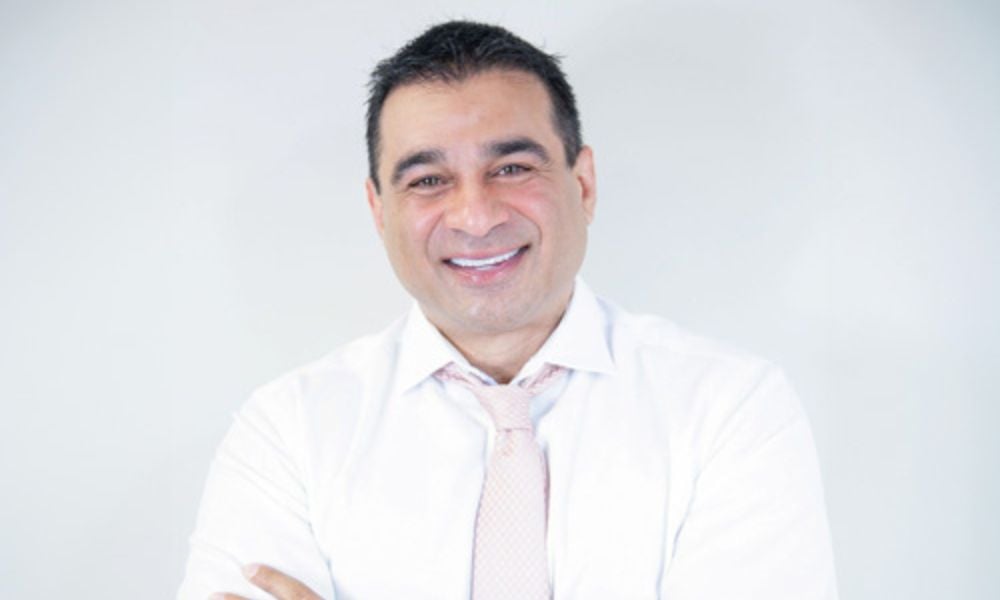Advisor highlights how he teaches his clients to look inwards and why that work prepares them for volatile moments like these

Red on the markets. Sell offs, recovery spurts, and more sell offs. Moments like these on equity markets are regular, even textbook, but there’s something about seeing all that red that spooks investors. It plays directly into the popular understanding of the two forces that drive investors: fear and greed. However, one advisor notes that it’s not so much fear and greed that motivate us, it’s pleasure seeking and pain avoidance.
Shafik Hirani is that advisor, the Senior Investment Advisor at Shafik Hirani’s Private Wealth Management of Aligned Capital Partners, takes an explicitly behavioural approach to his practice. His work is informed as much by the works of Freud and Pavlov as they are by Richard Thaler and Warren Buffett. He explained why he takes a behavioural approach and how he encourages his clients to look inwards and consider their impulses as investors. He highlighted how, in a moment of volatility like this, that self-awareness can result in more disciplined decisions and better investment outcomes.
“A lot of people think investing is about looking at external factors like macroeconomic conditions or capital markets. We try to help our clients focus on their own internal psychology, and the barriers that psychology can put up on the way to their goals,” Hirani says. “We find out what’s in their way. And sometimes that’s not concerns about capital markets or geopolitics, sometimes it’s their own biases.”
That process, Hirani explains, begins with probing questions. If clients want to change their biases and investment behaviour, the first step is understanding their current conditioning. He pulls from Ivan Pavlov’s work on stimulus responses to determine how clients have been conditioned to respond to good or bad news.
Questions begin with the subject of goals, dreams, and the path a client envisions for themselves. They go a little deeper into their parents’ approach to finances and the lessons they learned about investing. He introduces Freud’s concept of the id, ego, and superego, explaining how our egos intermedia between our instincts and reason. In doing so, he shows clients how their egos may act to protect them from possible pain and, in doing so, force them to make poor investment decisions. The deeper he goes with clients the more he says they buy in and realize the truth in Aristotle’s quote: “we are the architects of our own demise.”
This month, all that coaching and introspective work has proven its value. While US markets tanked on a holiday Monday in Canada, headlines screamed disaster, and market volatility spiked up, Hirani and his clients leaned on their behavioural coaching. He brought in a healthy dose of perspective, highlighting all the events that we’ve lived through that sparked massive market sell-offs, only for equity markets to steadily recover once again.
Our instinctive response to the pain of a market loss is to sell, to get off the rollercoaster and protect ourselves from pain. Using his behavioural work as a foundation, Hirani can offer clients the advice they need. That could involve some selling or rebalancing, or it could mean staying in or buying more. The key is that these decisions are made with an awareness of a client’s psychological biases and are therefore less driven by those instinctive responses.
That behavioural coaching is not easy. That’s because, in many ways, every client — almost every person — believes they are intelligent. Our confidence in our intelligence can also inform those bad decisions. Hirani finds that compliments and conversations about humility can help clients put aside that sense of overconfidence.
As important is Hirani finds introducing these concepts is, he places an even greater emphasis on listening. As advisors seek to educate themselves and their clients about behavioural advice, he says that an approach built on active listening and reflection can build that foundation.
“Advisors need to stop talking so much and they need to listen a little bit better,” Hirani says. “I think advisors would benefit from learning about their own conditioning, from the firms that they are employed by, from regulators, and from the training they have received. Sometimes it’s beneficial to tell clients about their asset allocation, their security selection, and their suitability analysis. Other times it’s more important to listen, identify the client’s goals and biases, and communicate from that more informed position.
“It’s a paradigm shift away from the external factors towards those infernal factors. When advisors embrace that, I believe clients will benefit.”



